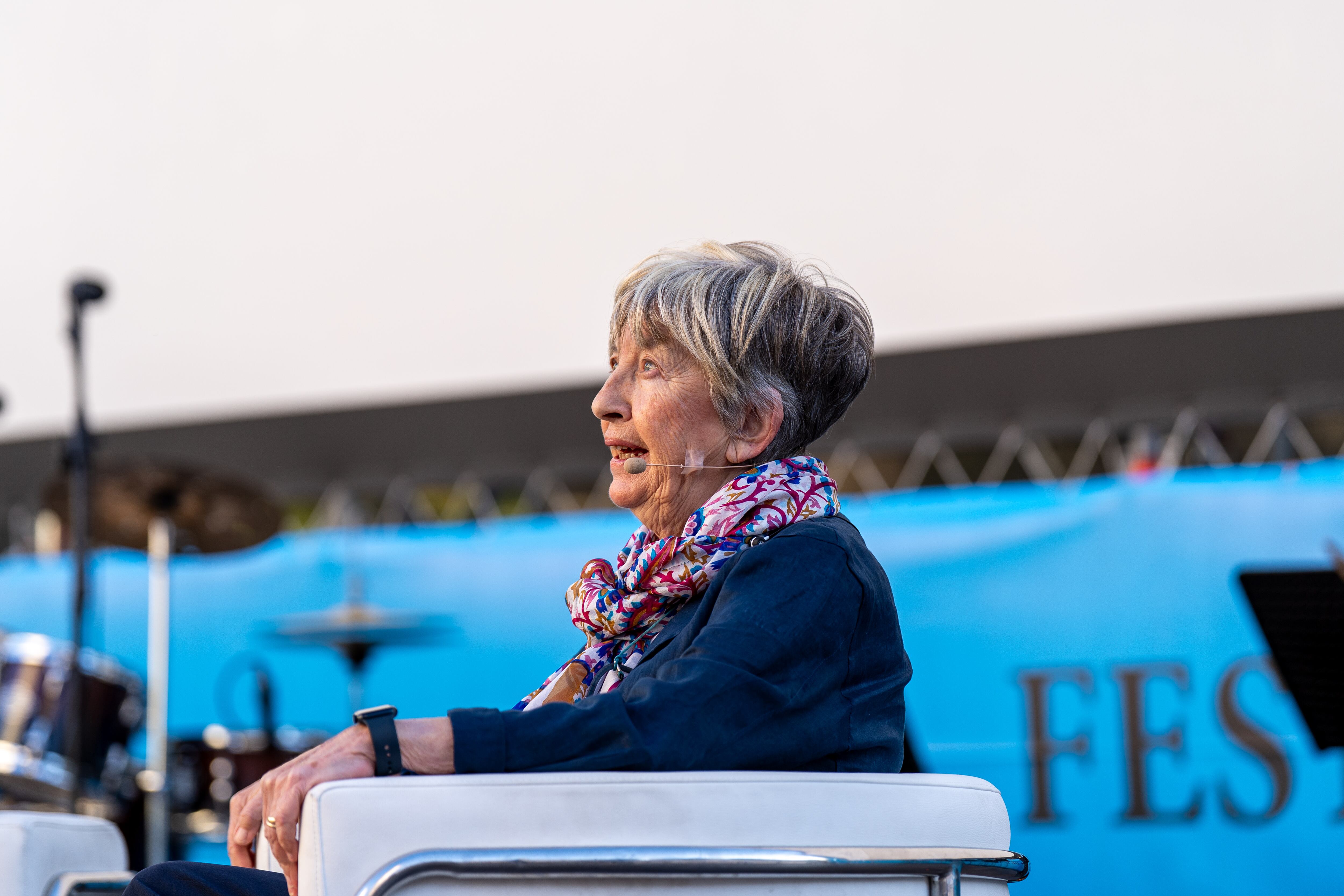Hundreds of people, many standing or without translation headphones, attended Sunday afternoon to the presentation of the philosopher Adriana Cavarero, on the last day of the Festival of Ideas. Around seven o’clock the conference began Tales that create, silences that mold: identity and narrative history of slandered womenmoderated by the philosopher Irene Ortiz Gala. “The time has come, although feminism has been doing it for a long time, to recover a female word and imagination that project a more egalitarian complexity, not that of the segregation of a sex,” Cavarero reflected in a dialogue of almost an hour.
The philosopher explained her art of “stealing” female characters from ancient literature to reinterpret them. Told the case of Penelope in the Odysseypresented as a faithful wife who awaits Ulysses. “The traditional interpretation is that she is a good wife and fulfills her duty,” he said. But, he added, in the story itself there are signs of another reading: “When Ulises returns they all recognize him, instead when he appears before Penelope, she tells him that she is not sure, that she gives her evidence … she is the only one who does not recognize her husband. Maybe she no longer expected.” To Cavarero, that Penelope enjoyed his loneliness, mocked the suitors and discovered their own value. “We can tell a different story, from a woman full of cunning, that when Ulysses arrives he returns to a patriarchal life, so she does not want to believe that she is her husband.”
In the middle of his speech, when he defined himself as a feminist, he recalled the importance of segregation in 1968, when in the university debates women met on their own: “They reflected on what they meant being a woman. To think autonomously the female subjectivity, with her own idea of freedom.” And evoke Penelope again. “It is very fun to steal female figures and find the fissures in their stories, the things that do not work,” he laughed.
Maternity
Women breaking wolf puppies It is the new Book of Cavarero, published in September 2025 by GUPHERG Galaxy. At the Festival of Ideas, the author took the opportunity to talk about the subject of her new publication: motherhood. “For years I have lived a self -censorship experience for the issue of motherhood,” he admitted about his way of focusing the issue. “In Western or symbolic order, it is said that women are made to give birth and raise children.”
He recalled that Simone de Beauvoir saw motherhood as a “cage that encloses women in the domestic sphere,” while writers like Elena Ferrante had claimed her as a privilege of knowledge, “knowledge about the regeneration of life.” “Even archaic cultures understood that between a man and a woman there was at least this difference: the woman became a mother and generated the new being.”
There he introduced Plato, who, according to Cavarero, saw the “maternal power” and transferred him “from the plane of the body to that of ideas”, so that men went to give birth to something “superior and intangible”, while the woman was subordinated. “It is evident that everything related to the body, materiality, must be subordinate and controlled,” he ironized.
In the end, he raised his proposal: “My work always consists of unraveling this dichotomy, in complicating it, and not to propose it again, because doing so would be stupid. I do not dream of a world where women govern, where matter counts and ideas do not count.” His goal, he said, is to rectate the story from the feminine look. “Women can narrate their part, not to impose themselves, but to explain how you can be part of complex relationships and live a life that is not a separation between the wonder of the thought and the secondary nature of the body.”

